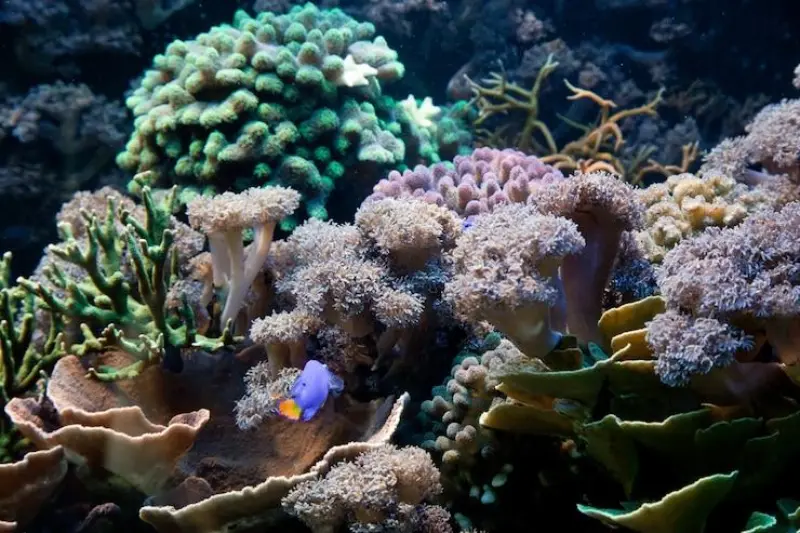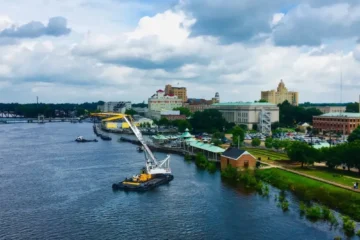Coral reefs are among the most diverse and essential ecosystems on Earth. They provide shelter to countless marine species and serve as natural barriers that protect coastlines from storms and erosion. Sadly, these underwater wonders are increasingly threatened by climate change, pollution, and destructive human activities.
Along the Caribbean coast of Central America lies Belize, a country known for its stunning blue waters, rich marine biodiversity, and the second-largest barrier reef system in the world. This region has become a global hub for conservation efforts, drawing attention from environmentalists and marine scientists alike.
One meaningful way to contribute to reef protection in this area is by becoming an eco-friendly volunteer in Belize. These dedicated individuals work alongside experts to restore damaged reef habitats, support scientific research, and raise awareness among local communities and tourists about the importance of preserving marine ecosystems.
Conservation Through Action: How Volunteers Restore Coral Reefs
Many coral reef saving efforts depend on eco-volunteers who protect this second-largest barrier reef on Earth by focusing their work in Belize. Their work includes different tasks that protect and revitalize the reefs.
- Reef Restoration Projects: Volunteers support the growth of coral fragments in underwater nurseries to plant them onto damaged reef sites. These projects assist in restoring damaged ecosystems that bleaching and destruction have harmed.
- Artificial Reef Structures: When natural structures vanish, the volunteers put up made-to-order reef modules. The structures provide an environment for underwater animals and enhance coral development.
- Invasive Species Management: The training programs work with volunteers to take down damaging lionfish populations that enter native marine regions.
- Marine Debris Cleanup: Through their cleanup efforts at sea and on coastlines, volunteers help to take away plastic waste and other trash that causes harm to marine animals.
Data Collection and Citizen Science: Building Knowledge for Better Protection
Scientists use the Belize Barrier Reef as a real-world environment for their marine discovery programs. The volunteer in Belize plays an essential part in the lively marine system. They learn to support scientific studies of coral life by finding and naming species alongside examining the reef environment’s condition. Through their work, ecotourists support scientists and protectors of natural systems to better track reef health and react promptly to ecosystem changes.
The volunteers working conduct important tasks such as measuring reef health and monitoring water quality.
- Reef Health Assessments: They measure how coral suffers from bleaching and discoloration, plus the development of harmful algae and health problems.
- Marine Species Surveys: Monitoring fish species exists beside other marine life helps us protect all organisms in our natural environment.
- Water Quality Monitoring: The organization checks salt levels, temperature and light transparency to discover environmental elements that affect reef health.
Belize and international authorities use these records to design effective marine protection programs.
Education, Awareness, and the Ripple Effect
Through their work, Eco-volunteers teach people about coral conservation both to Belizeans and tourists. Their work with coastal audiences makes sure everyone interacts with the reef to gain awareness about its value while practicing sustainable ways of using it.
- Local Engagement: The volunteer team offers people both school-based and local community programs to study marine science.
- Responsible Tourism Education: Their training helps scuba divers protect coral environments when they visit by learning to avoid touching the corals and using natural sunblock to protect marine life.
The Initiative for Coral Reef Guardians Works Beyond Its Main Focus
We must shield coral reefs since they support both local living things and human residents who depend on reef resources for their existence. Beyond coral reef protection, the eco-volunteers conduct essential tasks across their work areas.
- Mangrove Restoration: Mangrove forests enhance coastal life because they create safe ocean areas for reef fish and catch harmful substances from seawater. Water volunteers plant and take care of mangrove forests close to reef systems.
- Marine Protected Area (MPA) Support: MPAs rely on volunteers who help measure marine protected areas for fishing rule enforcement and look for species against official patrols.
Protecting ocean species helps train volunteers who earn money and gain expert knowledge.
Conclusion
The eco-volunteers work to safeguard the Belize coral reefs that require immediate protection the most. The volunteers protect marine life through their work of restoring natural habitat, combined with research and educational activities. Their work shows that quality volunteer programs let people interested in ocean life learn how to protect the water environment.




